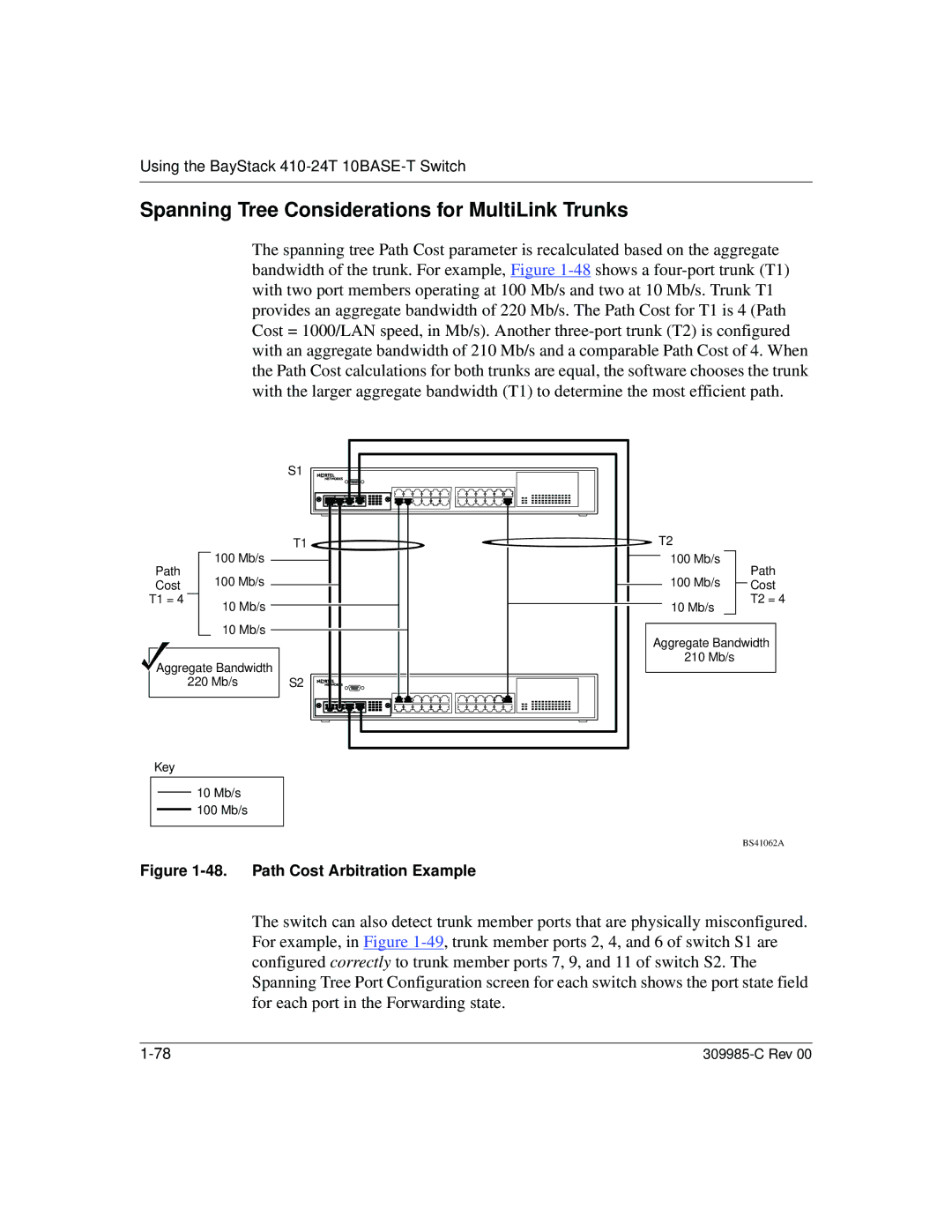
Using the BayStack 410-24T 10BASE-T Switch
Spanning Tree Considerations for MultiLink Trunks
The spanning tree Path Cost parameter is recalculated based on the aggregate bandwidth of the trunk. For example, Figure
|
| S1 |
|
|
|
| T1 | T2 |
|
Path | 100 Mb/s |
| 100 Mb/s | Path |
100 Mb/s |
| 100 Mb/s | ||
Cost |
| Cost | ||
T1 = 4 | 10 Mb/s |
| 10 Mb/s | T2 = 4 |
|
|
| ||
| 10 Mb/s |
| Aggregate Bandwidth | |
|
|
| ||
Aggregate Bandwidth |
| 210 Mb/s |
| |
|
|
| ||
| 220 Mb/s | S2 |
|
|
Key |
|
|
|
|
10Mb/s
100Mb/s
BS41062A
Figure 1-48. Path Cost Arbitration Example
The switch can also detect trunk member ports that are physically misconfigured. For example, in Figure
